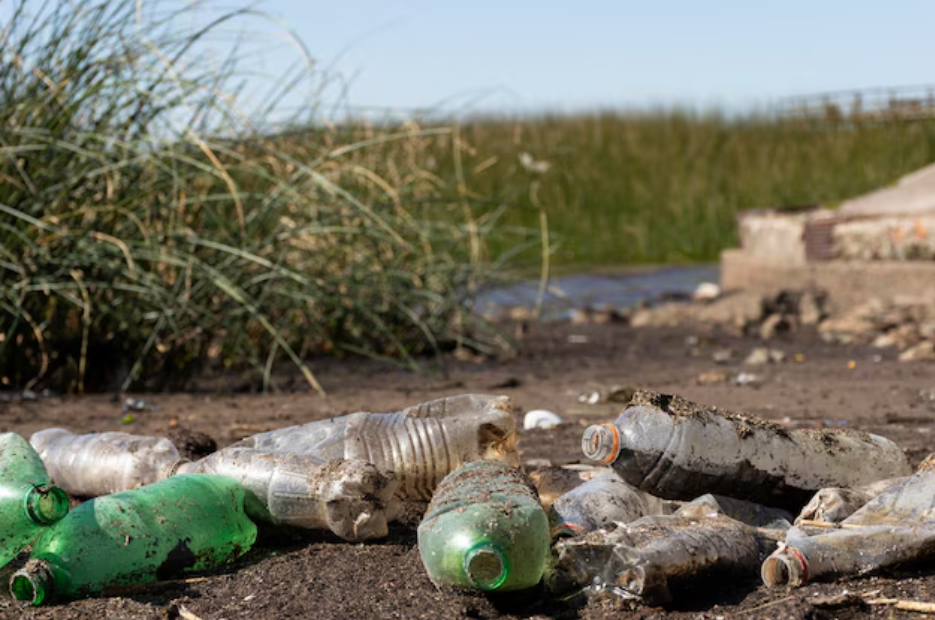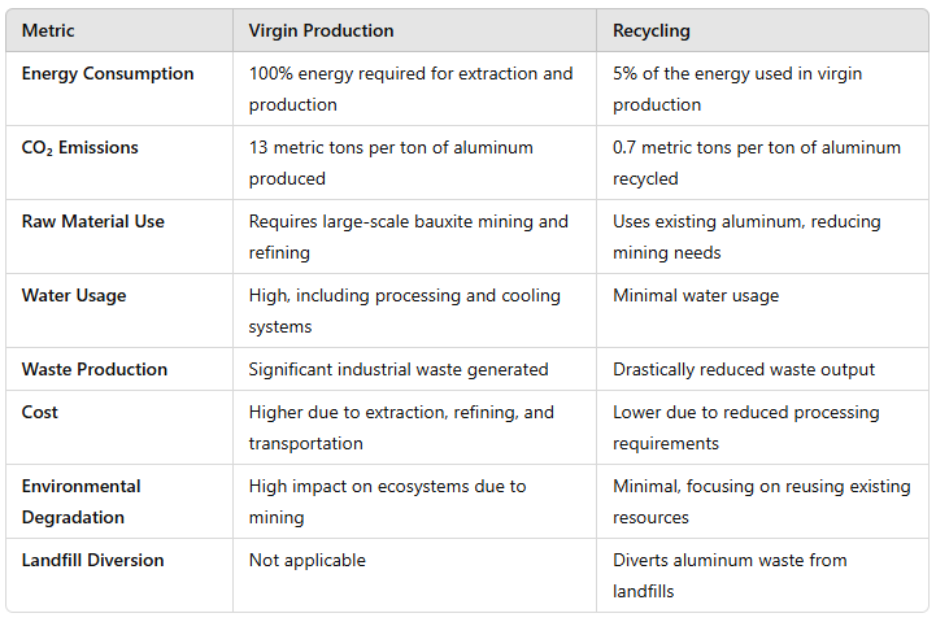Case Study: Reducing Carbon Footprint Through Recycling
- Blog
Recycling is a cornerstone of sustainable practices, helping businesses reduce their environmental impact while conserving valuable resources. By repurposing materials like aluminum, companies can lower greenhouse gas emissions and support a more sustainable future.
This case study explores how Fuzion Field Services’ innovative recycling programs empower organizations to achieve measurable carbon footprint reductions.
Understanding the Environmental Impact of Recycling
Recycling plays a pivotal role in conserving resources and reducing pollution. For example, aluminum scrap recycling is among the most energy-efficient processes, saving up to 95% of the energy needed to produce new aluminum. According to the Environmental Protection Agency, recycling just one ton of aluminum avoids approximately 13 metric tons of CO₂ emissions, making it a powerful tool in climate change mitigation.
Additionally, recycling minimizes the environmental toll of raw material extraction, which often leads to habitat destruction and significant energy use. Diverting materials like aluminum from landfills further reduces methane emissions, a potent greenhouse gas produced as organic waste decomposes. Through these processes, recycling directly contributes to environmental preservation and supports global sustainability goals.
How Recycling Reduces Pollution

Recycling reduces pollution by limiting the need for energy-intensive raw material extraction. Processes such as mining and manufacturing are major contributors to soil degradation, water contamination, and air pollution. By reusing materials, recycling decreases the environmental impact of industrial operations, leading to cleaner ecosystems and healthier communities.
Moreover, recycling mitigates the harmful pollutants released during the production of new materials. By focusing on repurposing existing resources, businesses can play an active role in protecting natural habitats and improving environmental quality.
Advancing Environmental Justice Through Recycling
Recycling also addresses broader societal issues. Waste management facilities are often located in underserved communities, exposing residents to environmental hazards. By reducing the volume of waste sent to landfills, recycling alleviates these burdens, promoting healthier living conditions and advancing environmental justice. This shift supports equity while fostering sustainable waste management practices that benefit all communities.
Fuzion Field Services’ Recycling Initiatives
Fuzion Field Services designs customized recycling solutions to help industries manage waste efficiently and reduce their environmental footprint. These initiatives align with producer responsibility programs, which shift the responsibility for waste management from consumers to the producers of goods, fostering environmental accountability and sustainability.
Core Components of the Program
- Collection: Fuzion provides strategically placed recycling bins at client facilities to streamline aluminum scrap collection.
- Processing: Collected materials are transported to advanced facilities where they are sorted, cleaned, and prepared for recycling.
- Repurposing: The cleaned aluminum is melted down and reformed into high-quality products, reducing the demand for virgin materials and closing the resource loop.
Fuzion’s approach ensures maximum material recovery while minimizing the environmental impact of waste management operations. Their focus on efficiency and sustainability translates into tangible benefits for both clients and the planet.
Implementation Process
The success of Fuzion’s recycling programs lies in their meticulous planning and execution.
- Assessment and Customization:
Each program begins with an in-depth evaluation of the client’s waste streams. Fuzion assesses the type, volume, and source of waste to develop tailored recycling strategies that meet specific operational needs. - Seamless Collection and Transportation:
Clearly labeled bins help clients separate aluminum scrap from other materials. Fuzion schedules timely pickups when bins reach capacity, ensuring minimal disruption to operations. Replacement bins are delivered promptly, maintaining continuity in the recycling process. - Efficient Processing and Repurposing:
At the recycling facility, aluminum undergoes rigorous sorting and cleaning to remove contaminants. The processed material is melted down and transformed into new products, conserving energy and helping clients achieve sustainability goals.
By prioritizing efficiency and precision, Fuzion seamlessly integrates recycling into clients’ workflows, making sustainable practices accessible and achievable.
Quantifiable Environmental Benefits
Recycling programs play a critical role in sustainable resource management by reducing the energy required for material production and minimizing waste sent to landfills. These efforts contribute directly to energy conservation, lower greenhouse gas emissions, and prolonged landfill lifespans.
- Energy Conservation: Recycling aluminum uses just 5% of the energy required for new production, significantly reducing electricity consumption.
- Emission Reduction: Each ton of recycled aluminum avoids approximately 13 metric tons of CO₂ emissions, directly lowering a business’s carbon footprint.
- Landfill Diversion: Recycling reduces waste volume, mitigating methane emissions from landfills and prolonging their lifespan.
Comparative Table: Recycling vs. Virgin Production

These advantages extend beyond environmental impact, supporting operational efficiencies and cost savings for businesses. Recycling also minimizes pollutants generated during raw material extraction and manufacturing processes, contributing to healthier ecosystems.
Economic Advantages of Recycling
Recycling contributes not only to environmental conservation but also to economic growth. According to the National Recycling Coalition, the recycling industry has created over 1.1 million jobs, generated $236 billion in annual sales, and contributed $37 billion in payroll. By participating in recycling programs, businesses support local economies while enhancing their sustainability efforts.
Driving Sustainability Through Collaboration

Successful recycling programs require close collaboration between businesses and service providers. Fuzion fosters these partnerships by educating clients on the environmental and operational benefits of recycling. From conducting waste audits to optimizing processes, Fuzion ensures every program delivers maximum impact.
Their commitment to innovation and continuous improvement makes recycling a practical, scalable solution for businesses aiming to reduce their environmental footprint.
Build Sustainable Solutions with Fuzion Field Services
Fuzion Field Services offers tailored waste management solutions designed to meet the evolving sustainability needs of modern businesses.
By integrating recycling into daily operations, we help clients achieve significant environmental impact reductions while promoting resource conservation. Whether your goal is regulatory compliance or corporate responsibility, Fuzion’s expertise ensures results.
Contact us today to learn more.